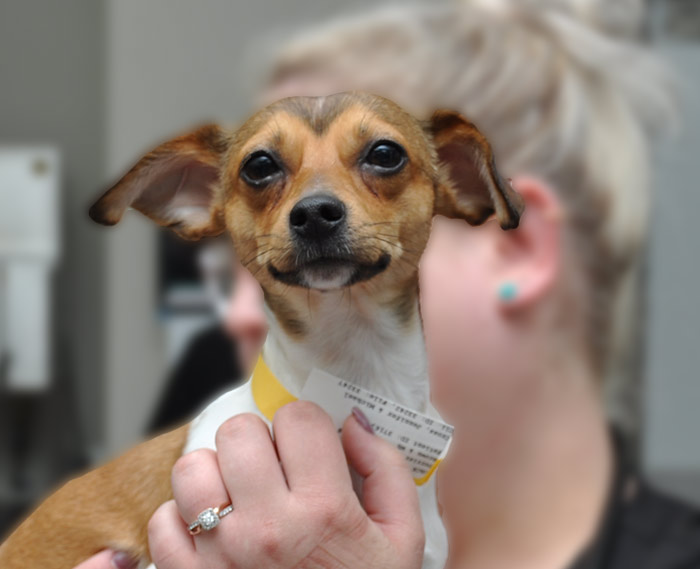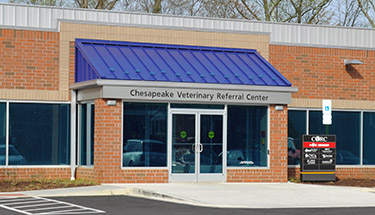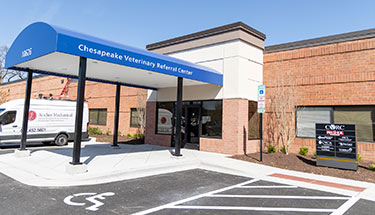A surgical specialist is a veterinarian who, in addition to having finished undergraduate requirements and four years of veterinary school, has received advance training in veterinary surgery. This training consists of another four-year commitment, with the first year being a rotating internship, and the next three years being an approved surgical residency program. Following completion of all the requirements of the outlined program, this veterinarian is then qualified to sit for the board examination, administered by the American College of Veterinary Surgeons (ACVS). Only after passing this rigorous multi-day examination can a veterinarian be called a veterinary surgeon, or surgical specialist. The designation Diplomate of the American College of Veterinary Surgeons (DACVS) is then used to identify these highly trained individuals.
Frequently, your veterinarian will recommend referral to a veterinary surgeon when your pet has a condition that is difficult to diagnose without extensive experience or specialized equipment, or when the treatment requires advanced techniques or instrumentation. Some of these procedures require vigilant anesthetic monitoring and intensive post-operative care, necessitating round-the-clock staffing of veterinarians, registered technicians and assistants. Registered technicians have a 2 or 4 year degree in veterinary science & often have years of experience with anesthesia & critical care when working for a diversified surgical practice. Many common procedures, such as most orthopedic surgeries, are potentially very painful; having doctors and technicians in hospital at all times, to administer timely pain medication can minimize needless suffering as your pet recovers from surgery. Other common reasons for referring more “routine” surgical procedures include pets that have other complicating factors in their medical history, which could benefit from the higher levels of pre- and post-operative care typically available at these institutions, such as heart disease, kidney disease, bleeding disorders, etc.
There are many regular veterinarians who offer a variety of surgical services, with varying levels of experience and expertise. When deciding how best to meet your pet’s needs, you should ask your veterinarian about their experience and success rate with the surgical procedure, it’s potential complications, and if there are alternative procedures available that might have a better outcome. You should also discuss the post-operative care that will be needed while in the hospital and at home. Pay careful attention to pain management, and if not specifically addressed, ask about it. The old lines about animals not needing pain medication, or that by providing pain relief, animals will only hurt themselves, is outdated and unacceptable.
Lastly, when discussing your pets surgical needs, you should feel comfortable asking your veterinarian if your pet would benefit from the services of a specialist in veterinary surgery. Common procedures for which animals are referred include orthopedic surgeries such as fracture repair, cruciate ligament injuries, and joint replacements to name a few. Soft tissue procedures such as many cancer surgeries, bowel resections, foreign bodies, urologic surgeries and procedures in the chest cavity are frequently referred. Most neurologic surgeries such as spinal fractures and herniated discs require the expertise of a veterinary surgeon or neurosurgeon.
As the procedures and diagnostics available in veterinary medicine become more advanced, the need for specialists in every discipline becomes more pronounced. A veterinary surgeon should work in close cooperation with your veterinarian to insure that your pet receives the best possible care. For more information, or to search for a surgical specialist in your area, visit the American College of Veterinary Surgeons at www.acvs.org.


















